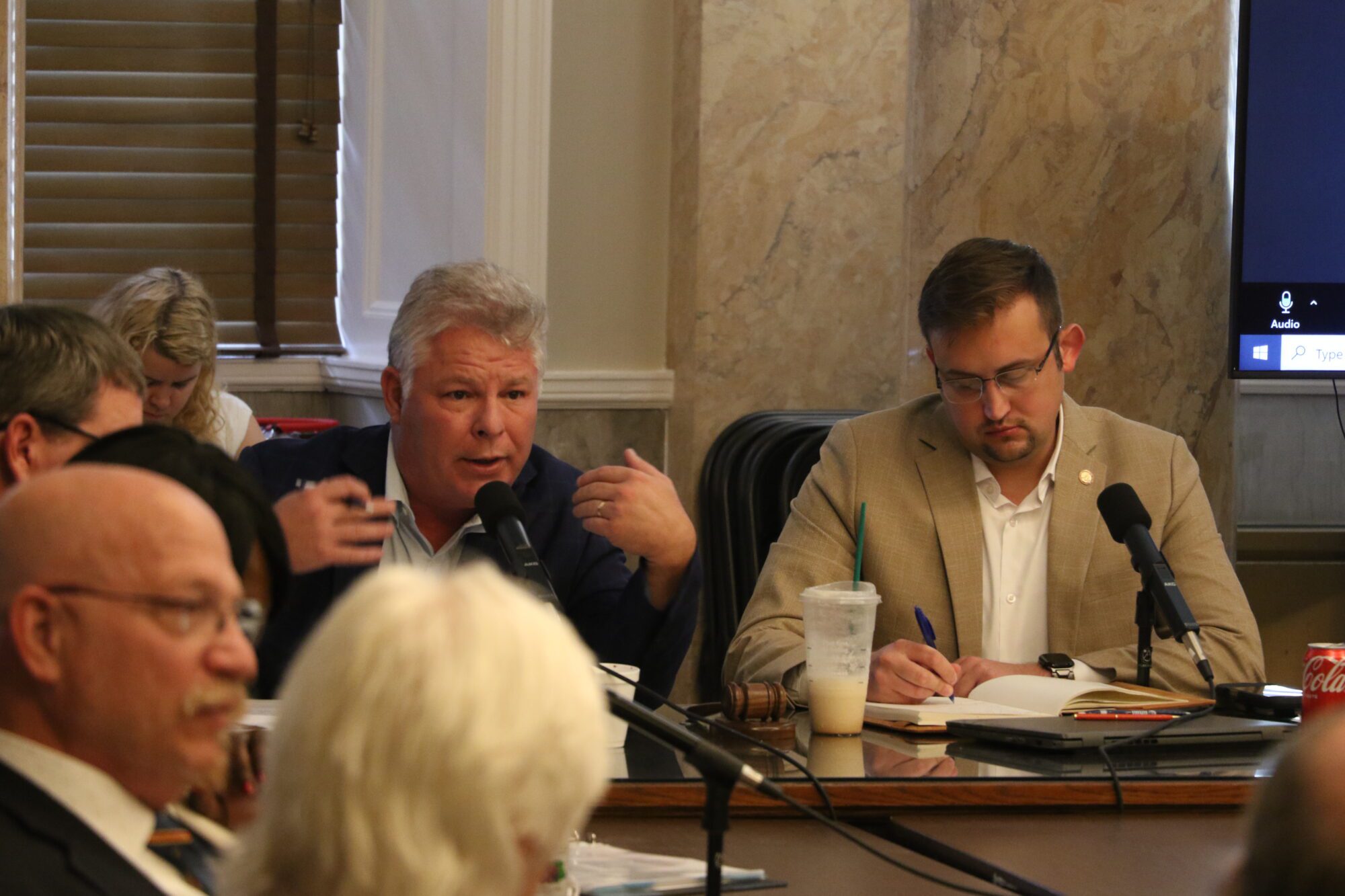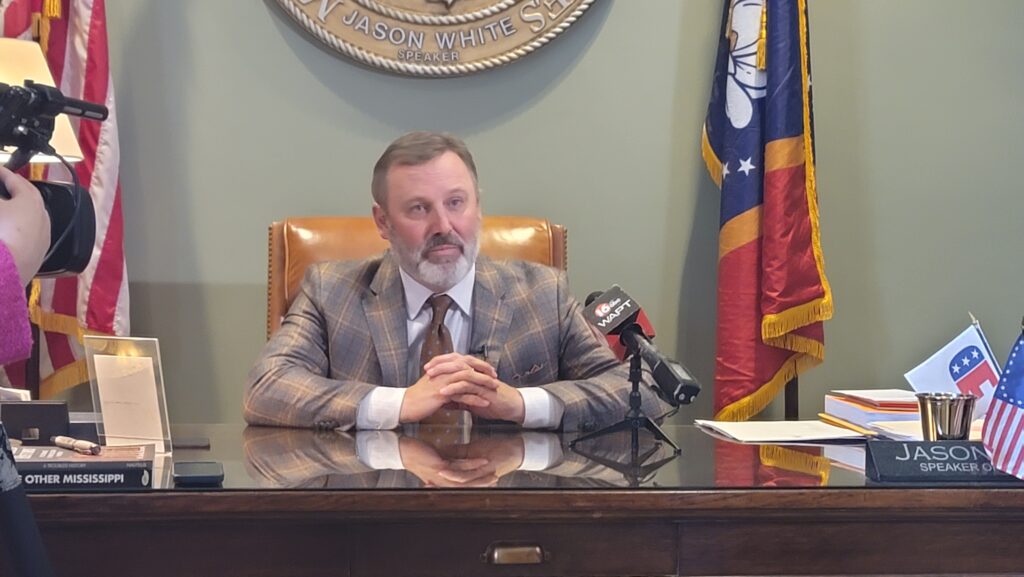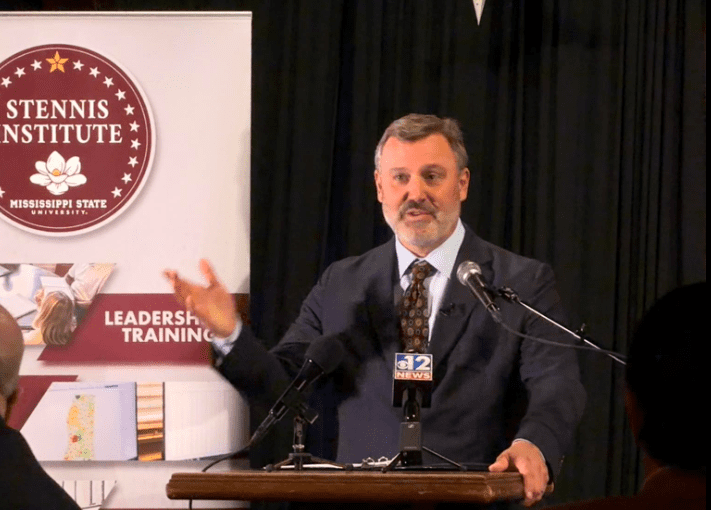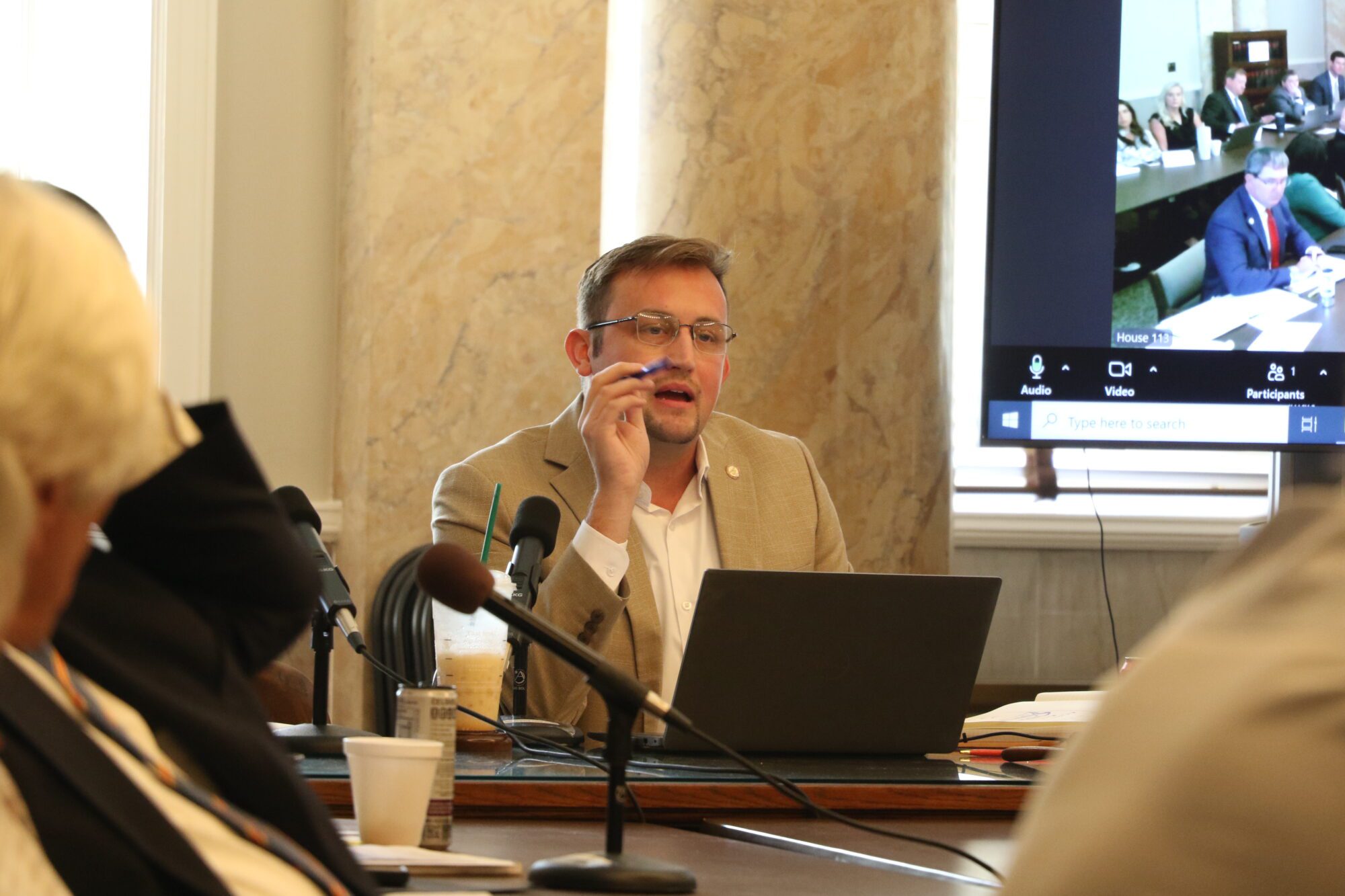
State Rep. Rob Roberson addresses the House Education Freedom Select Committee (Photo by Jeremy Pittari, Magnolia Tribune)
Listen to the audio version of this article (generated by AI).
- Speaker Jason White said earlier this week that “momentum is building for Education Freedom in our state.”
The third meeting of the Mississippi House Education Freedom Select Committee is scheduled for Thursday, with four speakers set to testify before lawmakers regarding the expansion of school choice in the Magnolia State.
This week’s meeting, set for 2 p.m. in Room 113 of the Capitol in Jackson, will feature representatives from the MidSouth Association of Independent Schools and the Mississippi High School Activities Association, along with Mississippi State Board of Education member Mary Werner and Sam Duell, Head of Policy for Yes.Every.Kid.
“The committee is excited to hear from the representatives of these four organizations,” said House Education Freedom Select Committee Chair State Rep. Rob Roberson (R). “I know that the committee will continue to be informed. We appreciate their willingness and commitment to making our schools and our students the best they can be.”
The select committee was formed by Speaker Jason White (R) after the 2025 legislative session to gather information as his chamber looks to craft education freedom legislation come January. White has publicly said that all forms of school choice will be up for consideration during the 2026 session, including public-to-public and public-to-private transfers.
Ahead of the committee hearing, Speaker White took to social media to combat a rumor swirling from anti-school choice groups claiming that transfers will result in overcrowding of schools, larger class sizes, and unpredictability for school districts.
“School districts will still have complete control over their admissions policies, and no school will be forced to accept a student it does not have the existing capacity to serve,” White said of any anticipated legislation from the House. “School districts can limit the number of students they accept each year and establish cut-off dates to ensure class sizes remain stable throughout the school year. Administrators can, and should, take into account current capacity limits and budget constraints when making those decisions.”
Speaker White added that the public school change being discussed aims to prevent a student’s assigned district “from holding the student hostage if another district is willing to accept them.”
“As the House presented in HB 1435 last session, the law would explicitly give receiving school districts the ability to accept a transferring child or not,” White said.
Speaker White said earlier this week that “momentum is building for Education Freedom in our state.”

About the Speakers
The MidSouth Association of Independent Schools website states that its mission “is to certify education integrity of member schools and promote the development and freedoms of independent schools in the Mid-South.” The MAIS serves 130 independent schools that provide education to 40,000 students within Mississippi, Louisiana, Arkansas and Tennessee.
The Mississippi High School Activities Association oversees sanctioned athletic and competitions within the state for public schools. It also oversees official competitions for activities, such as band, cheer and choir, to name a few.
Both organizations are likely to discuss the impact expanded school choice could have on athletics and extracurricular activities.
Mary Werner serves as an at-large member of the State Board of Education. Prior to serving on the Board of Education, she was a member of the Mississippi Health Services Board of Directors. Werner was the lone vote on the Board against ending the requirement for high schoolers to take a U.S. History end-of-course assessment.
As for the last speaker slated to appear on Thursday, Duell is a former educator in the public school system and currently leads design and policy development at Yes.Every.Kid.
Yes.Every.Kid. is an advocacy group that supports education freedom for parents. One of the group’s pillars is “Fund Every Kid,” which advocates for the rights of parents to use their child’s educational funding to find a setting that meets their child’s individual needs.











